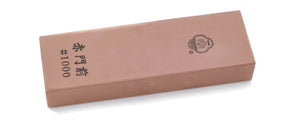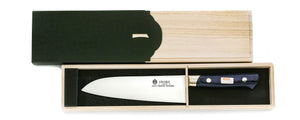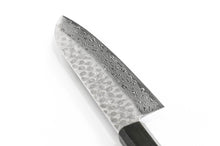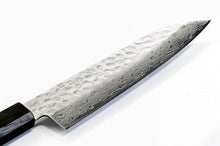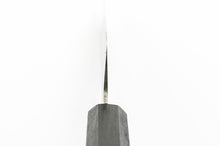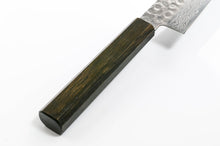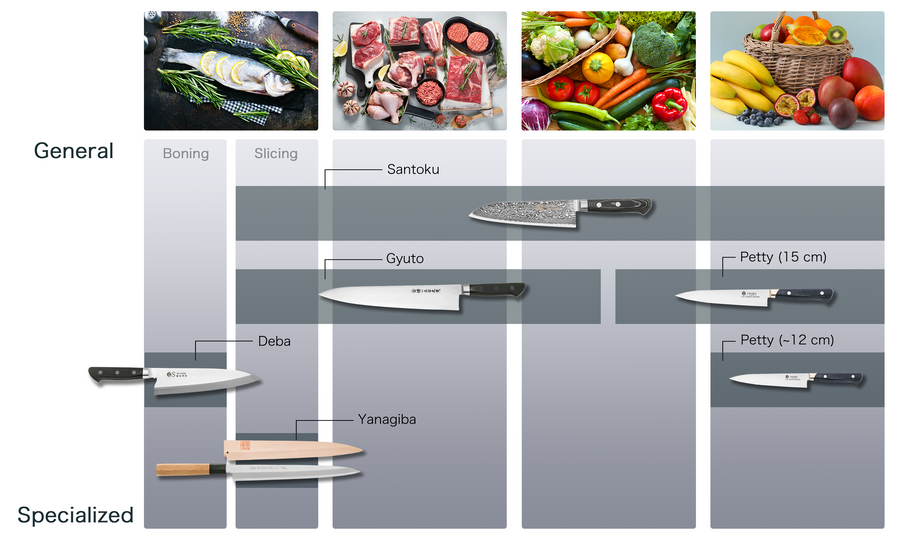
Sazanami Series with Japanese Style Handle
Sazanami means "ripple" in Japanese. The Sazanami name comes from the series' wonderful, wave-like Damascus pattern near the edge of the core blade.
This is a series of stainless clad knives. The core blade is made of AUS10 stainless steel, which is then sandwiched between other stainless steels. Cladding makes the knife stronger and allows for patterns on the blade's exterior without compromising the blade's quality. The Sazanami series have Damascus patterns and a Tsuchime (hammered) finish to emphasise the blade's beauty.
About AUS10
The AUS steels are known for their high rust resistance and ease of sharpening. Normally, these steels need to be sharpened frequently to maintain their optimal sharpness. However, the AUS-10 has relatively longer edge retention compared to other AUS steels, so you can enjoy cooking with less maintenance stress!
New Arrival – Another Choice You Might Be Interested In : VG10 Sazanami Series with Walnut Handle
If you’re looking for another option to suit your cooking style, our newly arrived VG10 Sazanami Series is worth checking out. Made with high-quality VG10 steel, these knives offer excellent sharpness, long-lasting edge retention, and a beautifully crafted hammered finish.
Explore the VG10 Sazanami Wa-santoku here : https://global.ichimonji.co.jp/products/vg10-sazanami-damascus-wa-santoku
| Product number | Actual Blade Length (mm) | Full Length (mm) | Total Weight (g) |
|---|---|---|---|
| 1b10ad-180 | 180 | 330 | 160 |
| Blade | Material Name | Handle |
|---|---|---|

Double Edged |
AUS-10 | Oak |

Wa-Santoku
A Wa-Santoku is typically used in households around Japan. Unlike the standard Santoku, the Wa-Santoku has a traditional Japanese handle which shifts the balance point slightly,allowing more nimble cutting.
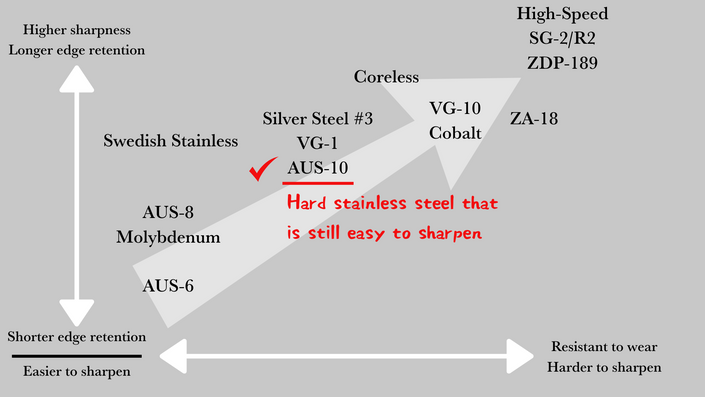
AUS-10
A stainless steel that has high hardness, yet is still easy to sharpen.
Stainless Steel
AUS-10 is a standardized stainless steel with high hardness levels to give it a superior cutting edge, yet is still easy to sharpen thanks to the smaller levels of materials like cobalt, which would normally increase wear resistance.
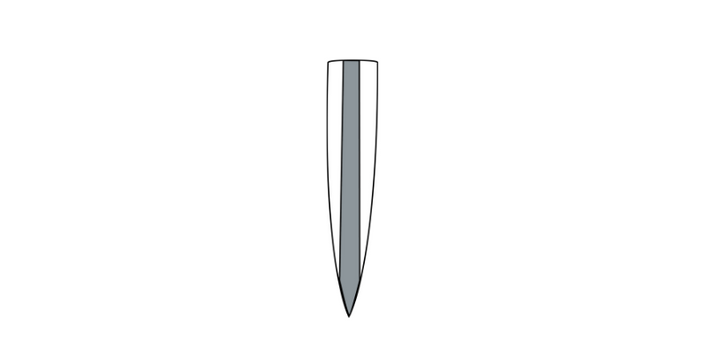
Clad
Clad knives are made from a steel plate that has a core steel sandwiched between soft iron. It is then shaped, hardened, and polished. This method is often used for knives focused on cost performance, as they are easier to remove distortions form and process.
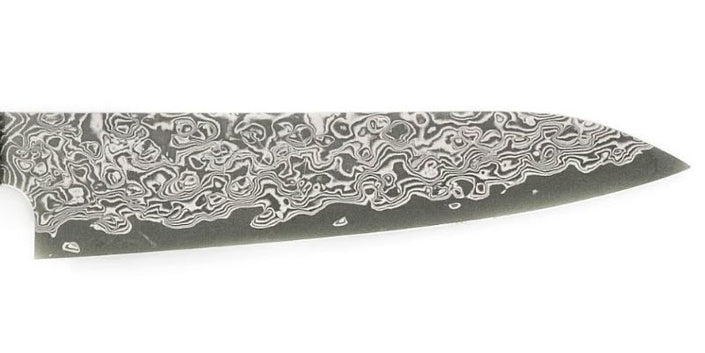
Damascus
Damascus is a knifemaking technique. It involves layering two types of steel with different hardness levels together to create a unique pattern. The knife is polished after it's shaped, making the harder steel shiny while leaving the softer steel dull, creating a ripple effect that resembles wood grain on the blade's surface. The ripples resemble the ripples of Wootz steel made in ancient Damascus, so the pattern is referred to as Damascus today. This beautiful pattern has garnered a high reputation and is popular in the kitchen knife community.

Optional Engraving
Optional Engraving Service
Sakai Ichimonji provides complimentary engraving using either Japanese Kanji or English Alphabet. Please specify your preference. For details, please visit here
A knife store that has supported the history of knives and food culture in Japan.
It has been 600 years since the birth of swordmaking in the Sakai region of Japan. Sakai Ichimonji Mitsuhide's and it's craftsmen continue to build on that legacy by producing the finest blades in Japan.
This is where the culture of completing a dish of sashimi by "just cutting" and the culture of expressing sharpness as "taste" was born.
For 70 years, we have been connecting the spirit of Sakai's craftsmen with the passion of chefs in Osaka's kitchen equipment shopping district, known as the kitchen of Japan.
We are very happy that our knives can be used by people all over the world.
Precautions
After use, wash off any dirt and wipe thoroughly with a dry cloth to remove any moisture. This product is not for use with frozen foods.This product is handmade, so each piece will be different. Please use the weight and length listed as a guide. Each material is natural and may vary in color. It is not the same as the picture.We take great care with our inventory, but in the unlikely event that we are out of stock, we will contact you by email to let you know.



























